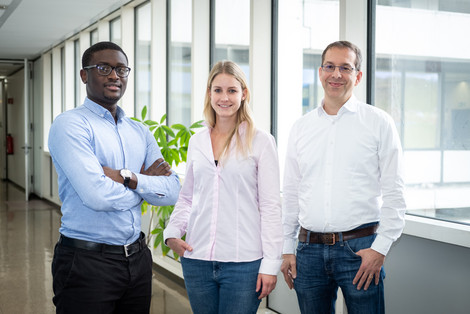Arbeitsgruppe Dr. Stefan Nessler
My group focuses on inflammatory demyelinating diseases of the central nervous system (CNS), combining human pathology and preclinical disease models to gain insight into pathogenic disease mechanisms. We are currently establishing preclinical disease models of cortical demyelination (Lagumersindez-Denis, Wrzos, Mack et al., 2017) and smouldering lesions, both of which provide histopathological correlates of disease progression in multiple sclerosis (MS). Furthermore, we are developing microglia depletion models to better understand whether microglia loss is the disease-initiating event in X-linked adrenoleukodystrophy (X-ALD), as has been suggested by human pathology studies (Eichler et al., 2008; Bergner et al., 2019). Recently, we identified type I interferons as the key factor for neuroinflammation and neurodegeneration in RNase-deficient leukodystrophies (Kettwig, Ternka et al, 2021). Finally, we work on antibody-driven disease mechanisms in neuromyelitis optica (Bennett et al., 2009; Winkler et al., 2021).
Our methodological approach is rooted in the profound characterization of human biopsies and autopsies of patients with demyelinating diseases. We make use of transgenic, reporter and humanized disease models in which we apply state-of-the-art tissue- and cell-based molecular techniques to broaden our pathogenetic understanding.

We are grateful for the support of the German Research Foundation (DFG) through the following grants:
- DFG Grant NE/2447/1-1: "Dynamics and function of monocyte and macrophage populations in the pathogenesis of demyelinating lesions in multiple sclerosis"
- DFG Priority Programme SPP 2395: “Local and Peripheral Drivers of Microglial Diversity and Function” (NE/2447/2-1).
Current lab members
Konstantina Kolotourou
Konstantina graduated from the Democritus University of Thrace, Greece in 2017 with a Bachelor of Science in Molecular Biology and Genetics. She received her Master’s Degree from the Georg-August University of Göttingen, Germany in 2019 and joined the Nessler lab as a PhD candidate in 2020. Konstantina is interested in unravelling the role of microglia in health and disease. In her current work, she replaces microglia by microglia-like cells in disease models for Alzheimer’s disease.
Mihaela Guranda
Mihaela has obtained her B. Sc. degree from the Hochschule Bonn-Rhein-Sieg University of Applied Sciences, Germany in 2019. She graduated with a M. Sc. Degree from the Georg-August-University in Jan. 2022 and joined this research group to pursue her PhD in neuroscience. Mihaela combines human pathology and animal models to study mechanisms of disease progression in multiple sclerosis and leukodystrophies.
Further lab members:
Carolin Dreyer M. Sc., neurologist in training
Willy Pameni-Nelson, medical student
Marta Lorenzo, bachelor student
Jonas Setzke, bachelor student
Kontakt

contact information
- telephone: +49 551 398469
- fax: +49 551 3910800
- e-mail address: stefan.nessler(at)med.uni-goettingen.de
Das könnte Sie auch interessieren
